Best movies like Weltbühne Berlin - Die Zwanziger Jahre
A unique, carefully handpicked, selection of the best movies like Weltbühne Berlin - Die Zwanziger Jahre . If you liked Weltbühne Berlin - Die Zwanziger Jahre then you may also like: The Wonderful, Horrible Life of Leni Riefenstahl, Naqoyqatsi, Berlin, I Love You, Berlin: Symphony of a Great City, Leviathan and many more popular movies featured on this list. You can further filter the list even more or get a random selection from the list of similar movies, to make your selection even easier.
Documentary portrait of Berlin the 1920s.
You may filter the list of movies on this page for a more refined, personalized selection of movies.
Still not sure what to watch click the recommend buttun below to get a movie recommendation selected from all the movies on this list
Naqoyqatsi
A visual montage portrait of our contemporary world dominated by globalized technology and violence.
Berlin, I Love You
An anthology feature of 10 stories of romance set in the German capital.
Berlin: Symphony of a Great City
A train speeds through the country on its way to Berlin, then gradually slows down as it pulls into the station. It is very early in the morning, about 5:00 AM, and the great city is mostly quiet. But before long there are some signs of activity, and a few early risers are to be seen on the streets. Soon the new day is well underway. It's just a typical day in Berlin, but a day full of life and energy.
Manhatta
Morning reveals New York harbor, the wharves, the Brooklyn Bridge. A ferry boat docks, disgorging its huddled mass. People move briskly along Wall St. or stroll more languorously through a cemetery. Ranks of skyscrapers extrude columns of smoke and steam. In plain view. Or framed, as through a balustrade. A crane promotes the city's upward progress, as an ironworker balances on a high beam. A locomotive in a railway yard prepares to depart, while an arriving ocean liner jostles with attentive tugboats. Fading sunlight is reflected in the waters of the harbor. The imagery is interspersed with quotations from Walt Whitman, who is left unnamed.
Maya Lin: A Strong Clear Vision
A film about the work of the artist most famous for her monuments such as the Vietnam Memorial Wall and the Civil Rights Fountain Memorial.
The Painter and the Thief
When two of artist Barbora Kysilkova’s most valuable paintings are stolen from a gallery at Frogner in Oslo, the police are able to find the thief after a few days, but the paintings are nowhere to be found. Barbora goes to the trial in hopes of finding clues, but instead she ends up asking the thief if she can paint a portrait of him. This will be the start of a very unusual friendship. Over three years, the cinematic documentary follows the incredible story of the artist looking for her stolen paintings, while at the same time turning the thief into art.
Portrait of Jason
Interview with Jason Holliday aka Aaron Payne. House-boy, would-be cabaret performer, and self-proclaimed hustler giving one man's gin-soaked, pill-popped view of what it was like to be coloured and gay in 1960s Unites States. Preserved by the Academy Film Archive in 2013.
Sink or Swim
Through a series of twenty six short stories, a girl describes the childhood events that shaped her ideas about fatherhood, family relations, work and play. As the stories unfold, a dual portrait emerges: that of a father who cared more for his career than for his family, and of a daughter who was deeply affected by his behavior. Working in counterpoint to the forceful text are sensual black and white images that depict both the extraordinary and ordinary events of daily life. Together, they create a formally complex and emotionally intense film.
The World Before Her
Moving between two extremes - the intimate verite drama of the Miss India pageant's rigorous beauty "bootcamp" and the intense regime of a militant Hindu fundamentalist camp for young girls. The World Before Her delivers a provocative portrait of India and its current cultural conflicts during a key transitional era in the country's modern history.
Café Nagler
The director embarks on a journey to reveal the story behind the legendary Café Nagler, owned by her family during the 1920s in Berlin, and finds that historical truths can be overrated.
I Often Think of Hawaii
"I Often Think of Hawaii" should be a film for the living room, in which the daily fantasies and daily things have unique value.
Im Land meiner Eltern
"Had it not been for Hitler, I would have been born a German-Jewish child, more German than Jewish, in a small village in the South of Germany. But as it happened, I was born in Argentina, my mothertongue is Spanish. I came to Germany 17 years ago." It is here, where author and director Jeanine Meerapfel starts searching for her own Jewish identity, being confronted time and time again with Federal Republic reality.
Asphalt
One of the last great German Expressionist films of the silent era, Joe May’s Asphalt is a love story set in the traffic-strewn Berlin of the late 1920s. Starring the delectable Betty Amann in her most famous leading role, Asphalt is a luxuriously produced UFA classic where tragic liaisons and fatal encounters are shaped alongside the constant roar of traffic.
Prinzessinnenbad
A film about three teenagers - Klara, Mina and Tanutscha - from the Berlin district of Kreuzberg. The trio have known each other since Kindergarten and have plenty in common. The three 15-year-olds are the best of friends; they are spending the summer at Prinzenbad, a large open-air swimming pool at the heart of the district where they live. They're feeling pretty grown up, and are convinced they've now left their childhood behind.
Melek Leaves
In 1970, Melek Tez came to Berlin as a young worker from Turkey. A confident woman, she first countered racist resentments and remarks with irony and wit. Jokingly, she even referred to herself as a "Kümmeltürkin", a derogatory German term for Turkish migrants. Yet after fourteen humiliating years, her fighting spirit has given way to resignation: Melek Tez is returning to Turkey. Blending documentary, interviews and re-enacted scenes, director Jeanine Meerapfel chronicles Melek Tez' life experience.
The Ties That Bind
The Ties That Bind is an experimental documentary about the filmmaker's mother, who was born and lived in southern Germany from 1920-1950. Through a mixture of personal anecdote and social history, she describes the rise of Nazism, the war years, and the Allied occupation, during which she met her future husband, an American soldier. The Ties That Bind breaks with the usual format of war documentaries, thus allowing a different portrait of the individual to emerge, while it reflects on the current political situation in America and the filmmaker's activities in relation to those issues.
Portrait of a Mobster
A vicious hood rises to the top of the rackets in Depression-era New York in this account of the life of Dutch Schultz.
Hans Westmar
Nazi film about the story of a Nazi Storm Trooper named Horst Wessel--here called "Hans Westmar"--who took part in street brawls and assassinations in Berlin in the 1920s and 1930s against Communists and other opponents of the Nazis, and was killed by Communists not long before this film came out.
The Brothers Warner
An intimate portrait and saga of four film pioneers--Harry, Albert, Sam and Jack who rose from immigrant poverty through personal tragedies persevering to create a major studio with a social conscience.
Married to the Eiffel Tower
Imagine a world in which people seem hostile while inanimate objects appear friendly – even affectionate. Imagine dreading the touch of another human but longing for a passionate encounter with a large public structure. This is the strange world of the "objectum sexual"– a group of people, mainly women, whose intimate lives revolve around objects with which they say they share romantic and sexual love. Erika is married to the Eiffel Tower. She has a passion for inanimate objects, and her mission is to fight the stigma surrounding the disorder and create a global network of sufferers - like Amy, in love with a church organ, and Eija Riita, who married the Berlin Wall.
DJ Punk: The Photographer Daniel Josefsohn
Nobody captured the atmosphere of 1990s Berlin better than German photographer Daniel Josefsohn, who died in 2016 at the age of 54, leaving his mark in advertising with his irreverent aesthetic and punk sensibility. It was his spontaneous, imperfect images shot for an MTV campaign in 1994 that first made him famous.
The Tigress
It's the roaring twenties in Berlin. The Tigress, a gorgeous, wild, and very independent street walker, falls for a handsome grifter. When one of her lovers gets jealous, she betrays him and has to skip town. The grifter reveals he has what it takes to move in upper class circles and suggests they flee to Carlsbad, a spa in Czechoslovakia. Does he love her or is he only using her? Is the Tigress madly in love with him or does she want to satisfy her vanity and drop him once he falls for her? The ancient cat and mouse game between a man and a woman unfolds amidst sensual seduction, the scheme of robbing a rich Texan and the jilted lover arriving from Berlin, gun drawn.
Caligari: When Horror Came to Cinema
On February 26, 1920, Robert Wiene's world-famous film The Cabinet of Dr. Caligari premiered at the Marmorhaus in Berlin. To this day, it is considered a manifesto of German expressionism; a legend of cinema and a key work to understand the nature of the Weimar Republic and the constant political turmoil in which a divided society lived after the end of the First World War.
Cinema's Exiles: From Hitler to Hollywood
Eight hundred German filmmakers (cast and crew) fled the Nazis in the 1930s. The film uses voice-overs, archival footage, and film clips to examine Berlin's vital filmmaking in the 1920s; then it follows a producer, directors, composers, editors, writers, and actors to Hollywood: some succeeded and many found no work. Among those profiled are Erich Pommer, Joseph May, Ernst Lubitsch, Fritz Lang, Billy Wilder, and Peter Lorre. Once in Hollywood, these exiles helped each other, housed new arrivals, and raised money so others could escape. Some worked on anti-Nazi films, like Casablanca. The themes and lighting of German Expressionism gave rise in Hollywood to film noir.
Rosas Welt – 70 neue Filme von Rosa von Praunheim
Rosa von Praunheim is an icon in the scene: gay activist, loving provocateur and a very special filmmaker from Berlin for decades. His curiosity for people and their fates runs through his extensive film work. For his 70th birthday he has now made 70 new short films. In the first part of the big project, he confronts Thilo Sarrazin with the mayor of Neukölln, Heinz Buschkowsky, and the Turkish lawyer and women's rights activist Seyran Ates; shows a homosexual hustler in Bucharest; gossip reporter Andreas Kurtz, who knows everything about Berlin's celebrities; Rosa's neighbors who live with her dependent brother; Esther Bauer, who survived Auschwitz, and the Berlin comedian Ades Zabel. High on the roofs of Berlin, the gay chimney sweep Alain Rappsilber tells him about his fetish leather meeting Folsom.
Berlin Escape Artists
An ideological and physical barrier fell on 9 November 1989 in Berlin. For 28 years, this 155 km wall divided Germany in two, separating friends and family. The recent discovery of some documents reveals the stories of those who managed to escape to join their loved ones, or simply to regain their freedom. Demonstrating imagination and courage, some dug tunnels to get under the Berlin Wall, others inflated balloons to fly over it, while others disguised themselves with fake uniforms. By combining archives, reconstitution sequences and intrigue scenes, this documentary plunges us into a Berlin that has now disappeared, through the prism of the art of escape under the GDR.
Do Right and Fear No One
A portrait of a woman’s life between 1915 and 1975. In Jutta Brückner’s documentary, her mother looks back at the 60 years of her life, talking about her father’s early accidental death, the constraints faced by a lower middle-class family of five, her training as a seamstress, marriage to a bookkeeper committed to social democratic ideals, the privations of war, and not least of all, her later realisation that fear may have caused her to miss opportunities … An ingenious collage of picture and sound accompanies the mother’s narrative, a tapestry of proverbs, pop songs, marching music, and the noise of war. Hundreds of photographs – most selected from August Sander’s (1876–1964) project “People of the 20th Century”, alongside newer photos by Abisag Tüllmann, among others – lend the individual vita of the director’s mother a kind of ontological validity. Images of labourers and office workers, excursions and marches, imbue what we hear with references that transcend the personal.
Jochen - Ein Golzower aus Philadelphia
About the son of an agricultural functionary who helped enforce the socialist order in Philadelphia in Brandenburg, then in Golzow (Oderbruch) and finally in Bernau near Berlin. Jochen therefore went to school in Golzow for only one year. He became a milker, was a border guard, married and lives with three children in Bernau. Just as disappointed with the GDR as he was with its fall, today he is even with all politics.
A Hero's Death
It was the biggest escape in the history of the Berlin Wall: in one historic night of October 1964, 57 East-Berliners try their luck through a tunnel into West Berlin. Just before the last few reach the other side, the East German border guards notice the escape and open fire. Remarkably, all the refugees and their escape agents make it out of the tunnel unscathed, but one border guard is dead: 21-year-old officer Egon Schultz.
Störung Ost
In the early 80's die sozialistische kleiderordnung ( The Socialist Dress Code) in East Berlin is attacked. By black and colourful punks. Youth clubs, restaurants and cafes are closed for the punks. Where to go? Their homes are raided by the police.
Dusk: 1950s East Berlin Bohemia
A documentary and film essay about the artist scene in East Berlin during the 1950s.
The Berlin Affair
What begins as an innocent art class becomes a steamy triangle of erotic passions and forbidden love. A beautiful Japanese girl becomes the object of obsession in a devious relationship between the wife of a German diplomat and her husband.
The All-Around Reduced Personality: Outtakes
Edda Chiemnyjewski, a freelance press photographer and single mother living in 1970s West Berlin, is confronted with the fact that "a cook has no time for affairs of state". She also fails to find a market for the project she has been working on with her women′s photography group that seeks to document the city. While from today′s perspective the city, which becomes one of the film′s protagonists, looks like post-war Berlin, little has actually changed as regards the precarious existence of free-lancers. With a heavy dose of self-irony Helke Sander, who also plays the leading role, tells of a divided life in a divided city.
Mother Krause's Journey to Happiness
Mutter Krause, her daughter Erna and her son Paul live in a tenement in the poorer section of Berlin's Wedding district. Along with them lives "the Tenant", his soon-to-be bride Friede, who works as a prostitute, and her child whose name isn't revealed in the film. Mutter Krause is a quiet, long-suffering old woman who earns what little she can delivering newspapers. However, Paul is an alcoholic and spends all her money on drink. Mutter Krause can't pay back the money she owes the man whose newspapers she delivered and he accuses her of stealing and threatens her with arrest. Mutter Krause must then pawn her last valuable possession, a treasured memento of her late husband. Paul then breaks into the same pawn shop. He gets away but is later arrested. Meanwhile, Erna begins dating a young man with Communist views, who turns Erna to Communism and also helps her earn the money her mother needs by more honest means.
Live in Berlin
Psychic TV performs live at the Berlin Atonal Festival, December 2nd, 1983.
Kai from the Box
Kai, a young boy, living in 1923 Berlin tries to convince an American businessman that he can market his chewing gum better than anyone else in town.
Portrait of an Unknown Woman
Keller, a painter, while at the ballet is impressed with the beauty of Nicole and sketches her head on the body of a nude model. When it is shown, it causes embarrassment to Nicole's husband, Walter, a diplomat whose career is threatened.
Das Ei ist eine geschissene Gottesgabe
The film is a documentary about life on a farm near Bad Toelz in Bavaria. Only the people which are portrait are shown and speak. The fundamental difference 'Das Ei ist eine geschissene Gottegabe' has very much humor althought the people only tell true stories and their real oppinions.
The Eleanor Roosevelt Story
An intimate and moving portrait of one of the most remarkable women in American history. It is the story of a lonely, unhappy child who became the most admired and respected woman in the world. Richard Kaplan's lively documentary reveals the human face behind the American icon, beginning with the emotional deprivation suffered by this plain, awkward little girl born into a socially prominent and powerful family. Though she would eventually marry a man who would look beyond her awkwardness, Eleanor was not content to be the proper, silent wife to her husband Franklin's extraordinary political career. Instead, she began a lifelong crusade to speak out about injustice and oppression in any form. Preserved by the Academy Film Archive in 2006.


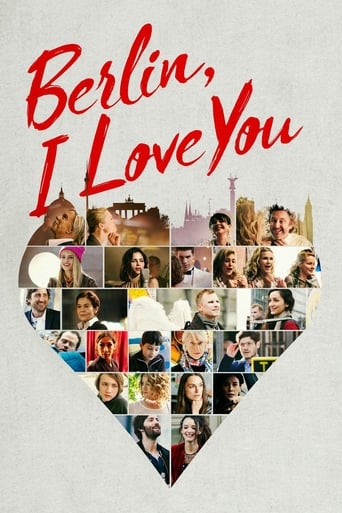

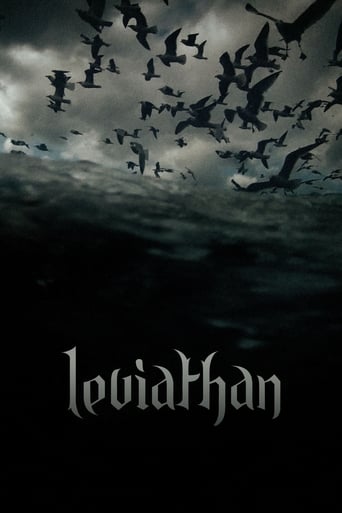
















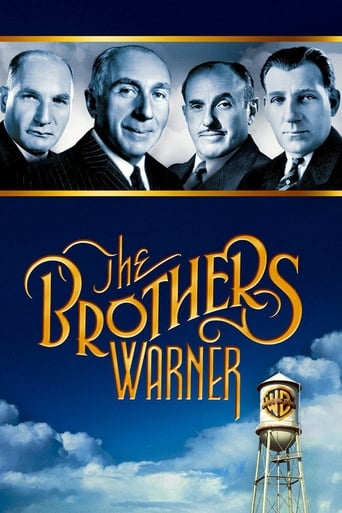



























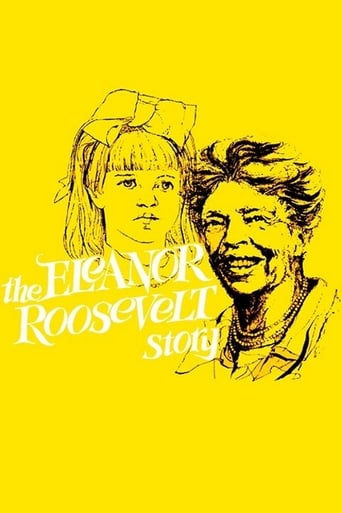
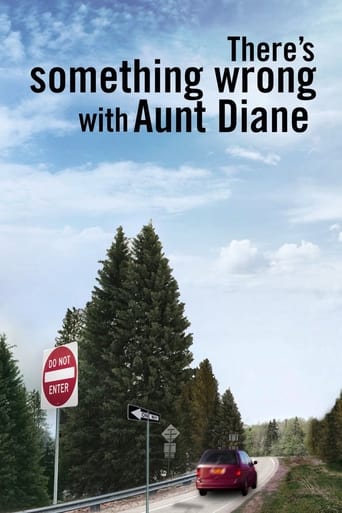
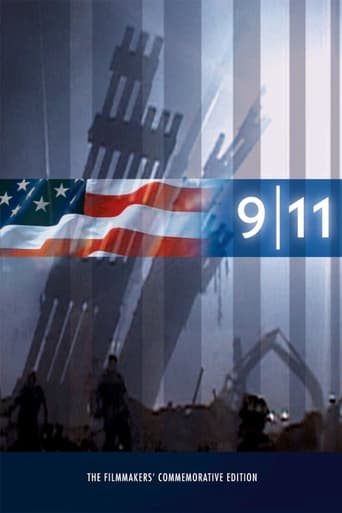

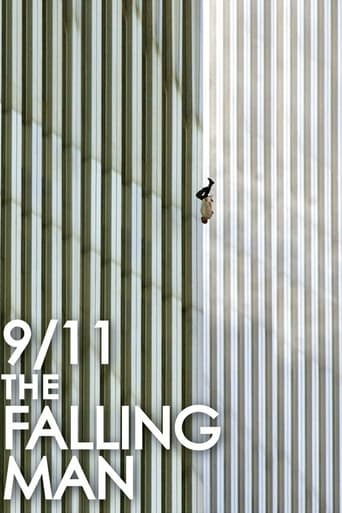
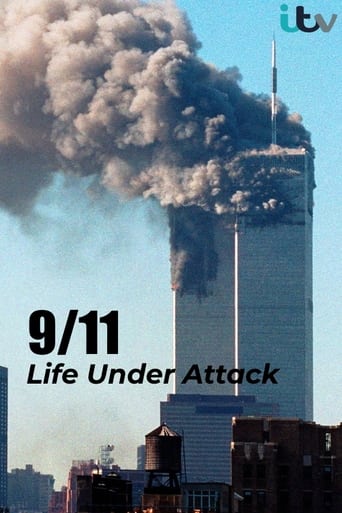
The Wonderful, Horrible Life of Leni Riefenstahl
This documentary recounts the life and work of one of most famous, and yet reviled, German film directors in history, Leni Riefenstahl. The film recounts the rise of her career from a dancer, to a movie actor to the most important film director in Nazi Germany who directed such famous propaganda films as Triumph of the Will and Olympiad. The film also explores her later activities after Nazi Germany's defeat in 1945 and her disgrace for being so associated with it which includes her amazingly active life over the age of 90.